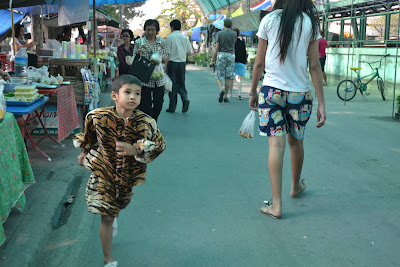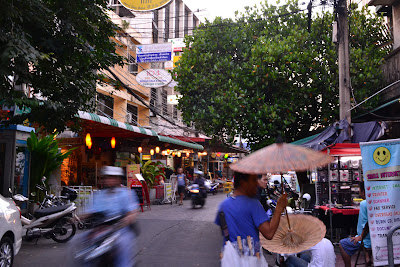I hadn't realized how much I rely on this one tiny bit of English as a way of easing into conversations: "how are you?"
As I'm slowly acquiring some Japanese, I remain at a loss as to what phrase to use in place of this while conversing with Japanese acquaintances. "O genki desu ka?" essentially means "you are well?", and is the closest equivalent that I am aware of. As far as I can tell, though, this is not exceedingly common, especially in casual conversation. I have only heard it used a couple of times, and once quite jokingly with students who were causing some mild mayhem.
I could be wrong, or there could be something quite simple that I've been missing all along and just haven't learned yet. But in the absence of such knowledge, I wonder why it might be that we ALWAYS follow our greetings with an inquiry as to the other's wellbeing, and why this doesn't seem to be the case in Japan.
I wonder...are personal feelings a less common conversational topic? More private than public? People seem to avoid discussing how they really feel about things, instead remarking on the state of situations and how they have affected other people and things. In my observations this seems to be the case, but I write this with a bit of hesitancy about making an easy blanket statement about the entire culture. I'm still sorting my way through everything, and quite possibly have just missed these kinds of subtleties. However, maybe there is more of a reservation about inward, personal matters than I'm used to.
On the other hand, though the surroundings I have grown up in seem to value being emotionally open (in some ways), we very rarely answer the question "how are you?" truthfully. Possibly with those closest to us, but usually it's an automatic "Good; you?"
This is one reason I find the "greetings" at the start of English classes in Japan so interesting and yet not quite natural.
"How are you?"
"I'm fine/sleepy/tired/hungry/hot/cold/happy, and you?"
Hm. I don't think I've ever responded to that question by elaborating on my body temperature.
 Around Christmas I had the chance to take some holidays, and spent the most wonderful vacation in Thailand with Jackie. A very unique Christmas. Lots of gorgeous, interesting scenes, colour, craziness, and delicious food.
Around Christmas I had the chance to take some holidays, and spent the most wonderful vacation in Thailand with Jackie. A very unique Christmas. Lots of gorgeous, interesting scenes, colour, craziness, and delicious food.
 Our flight there gave us a snack basket - unexpectedly, the onion cookies were my favourite.
Our flight there gave us a snack basket - unexpectedly, the onion cookies were my favourite.


 This coconut water (?) was actually delicious.
This coconut water (?) was actually delicious.



 Ah tourists.
Ah tourists. Kind of felt like we had stumbled into a small community's market - after just a few minutes in a taxi, we were the only foreigners in sight it seemed. We were entertained by some off-key karaoke singing in the park nearby while we ate our lunch.
Kind of felt like we had stumbled into a small community's market - after just a few minutes in a taxi, we were the only foreigners in sight it seemed. We were entertained by some off-key karaoke singing in the park nearby while we ate our lunch. Tiger man.
Tiger man. Giant reclining Buddha at Wat Pho.
Giant reclining Buddha at Wat Pho.






 Chaotic Khao San Road.
Chaotic Khao San Road.
 Mmmm maybe not a good sign.
Mmmm maybe not a good sign. We'll cook your street food AND do your laundry.
We'll cook your street food AND do your laundry.
 Christmas pad thai dinner.
Christmas pad thai dinner. Sweet accomodations.
Sweet accomodations.



 Ruins of the ancient kingdom of Sukhothai.
Ruins of the ancient kingdom of Sukhothai.
 The monks took just as many photos as us.
The monks took just as many photos as us.



 It's a Thai Iced Tea! And a goldfish table!!
It's a Thai Iced Tea! And a goldfish table!!
